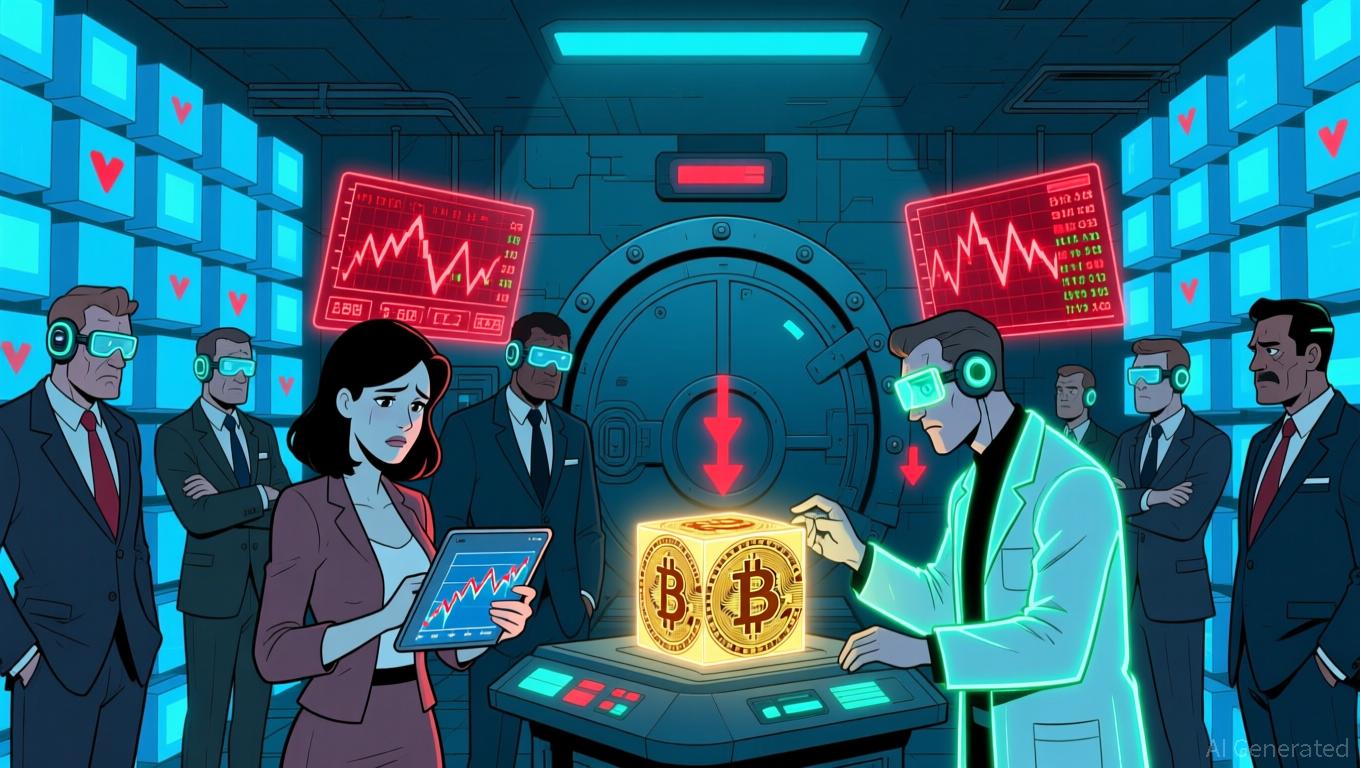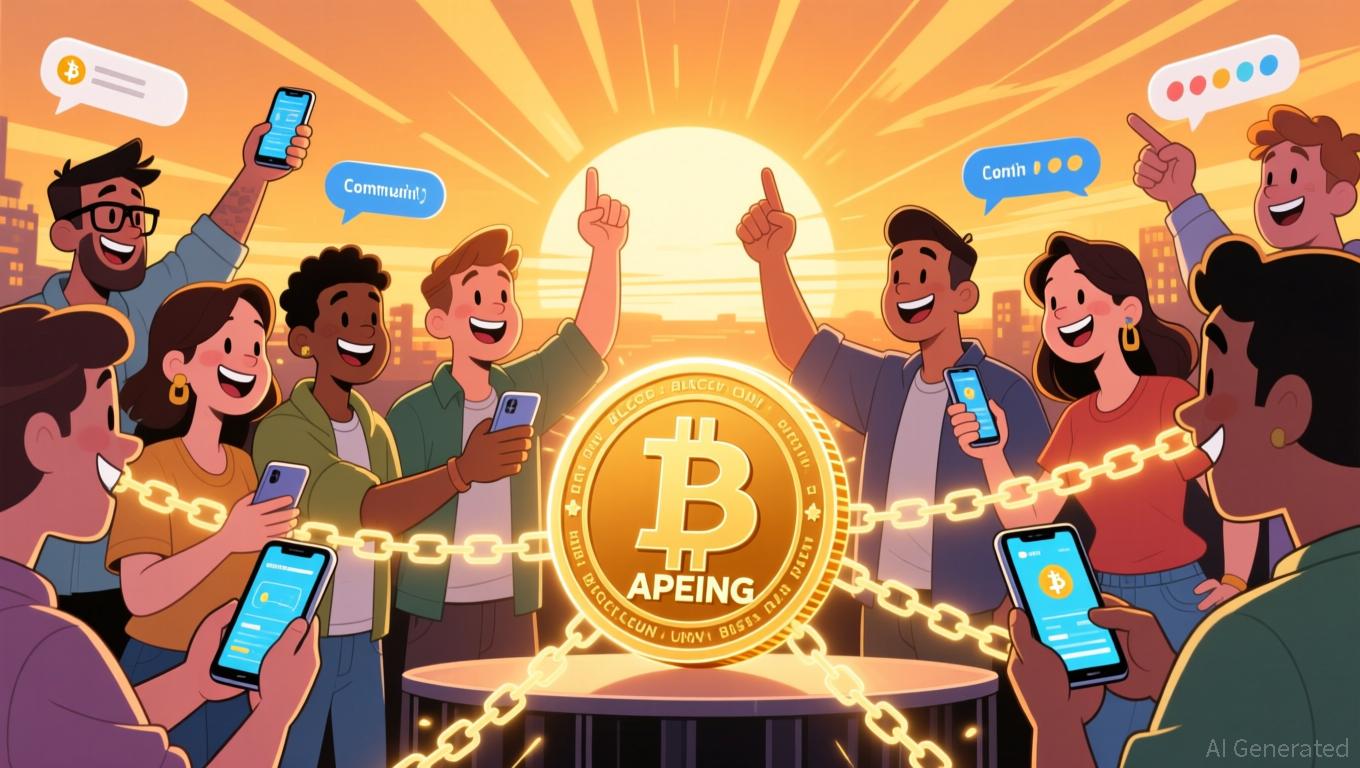Widening Wealth Gap and Employment Concerns Drive Consumer Confidence to Record Lows
- US consumer confidence fell to near-record lows in November (index 51), driven by inflation fears and worsening personal finances, per University of Michigan data. - Wealth disparities deepened as affluent consumers maintained spending power while non-stockholders faced deteriorating financial conditions. - Job insecurity spiked to 2020 levels, with rising unemployment claims and pessimism about re-employment prospects exacerbating economic anxiety. - Market volatility reflected broader uncertainty, exem
In November, US consumer sentiment dropped sharply, reaching a near-record low of 51, down from 53.6 in October,

The survey further revealed a significant gap between higher-income households and those earning less. While wealthier Americans seem able to keep spending, people without stock investments are experiencing worsening financial situations, highlighting vulnerabilities that broader economic data may overlook
Elsewhere, economic uncertainty has affected unrelated industries. Mawson Infrastructure Group Inc. (NASDAQ:MIGI)
The University of Michigan’s analysis also found that consumers became slightly more negative about short-term economic prospects, even after the end of the longest government shutdown in US history. Conditions for making large purchases hit all-time lows, signaling that households remain cautious about spending. These patterns indicate that, despite some relief from inflation, concerns about the cost of living and job security continue to undermine consumer confidence.
Disclaimer: The content of this article solely reflects the author's opinion and does not represent the platform in any capacity. This article is not intended to serve as a reference for making investment decisions.
You may also like
Coast Guard Strengthens Prohibition of Hate Symbols to Combat Antisemitism and Extremist Activity
- U.S. Coast Guard reversed a policy to reclassify hate symbols like swastikas and nooses from "potentially divisive" to prohibited, following backlash from lawmakers and advocacy groups over antisemitism risks. - The reversal came after a leaked draft proposal aligned with Trump-era Pentagon directives, which critics argued weakened harassment definitions and accountability for hate incidents. - Coast Guard reaffirmed strict prohibitions on divisive symbols, emphasizing severe punishment for violations, b

Bitcoin Updates Today: MicroStrategy Faces a Bitcoin Conundrum: Should They Retain for Future Gains or Liquidate to Stay Afloat?
- MicroStrategy's stock hits 52-week low as Bitcoin dips below $88,000, testing its BTC treasury strategy's viability. - 650,000 BTC holdings now "underwater" at $74k average cost, limiting capital raises and straining liquidity instruments. - Preferred shares (STRD/STRK) fall 30-34% as market demands higher yields, while JPMorgan warns of $8.8B outflow risk from index exclusion. - CEO Saylor claims 80% BTC drop tolerance, but critics fear forced sales could trigger self-fulfilling price declines. - Weak c

XRP News Today: XRP Faces $1.75 Test as Buyers Confront $15M Withdrawals with ETFs on the Horizon
- XRP faces critical $1.75 support zone amid $15.5M outflows and 50% decline from July highs. - TD Sequential buy signals and ETF launches (Nov 18) could trigger rebounds or stabilize price. - Key resistance at $2.150 threatens bearish trend if $1.75 support fails to hold. - Market volatility highlights ETFs' potential to shift institutional adoption and price dynamics.
Blockchain Sheds Light on Criminal Networks While Meme Coins Transform the Future of Cryptocurrency
- UK's NCA dismantled a £1B crypto money-laundering network linking Russian entities to drug trafficking and war funding, arresting 128 and seizing £25M in cash/crypto. - Blockchain analytics tools like Chainalysis are enabling law enforcement to track illicit crypto flows, challenging the anonymity of public blockchains in cross-border crime. - Meme coin Apeing (APEING) emerges as a 1000x contender through community-driven momentum, transparent whitelist access, and structured communication, contrasting t
